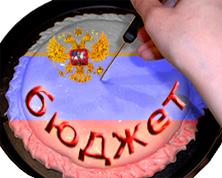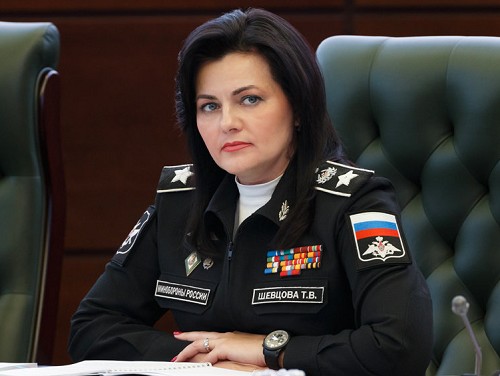
About the reasons for the sharp increase in the number of conflicts in the workplace, which began in Russia, says political analyst Nikolai Mironov.
The center for economic and political reforms (CEPR) published a report on the results of monitoring of socio-economic tension in the regions. According to this study, in the third quarter of 2016, compared with the previous quarter, the number of conflicts in employment increased more than twice — from 263 cases to 544. Most of them are associated with the delay of wages, and in some places they already reach up to a year. The reasons for this phenomenon, reminiscent of the “dashing nineties”, in an interview with “Rosbaltu” said the head of CEPR Nikolay Mironov.
– As follows from the data of your report, the record for delays of salaries are the manufacturing industries of Russia. How do you explain it?
– Machining and construction. The oil industry, and everything related to extractive industries (mainly oil and gas) are always in our country the special economic situation, leave yourself a large enough share of income that allows them to maintain relatively high wages. They are on export flows and can afford to survive and no one to cut.
But manufacturing industry is not protected. It is largely focused on the domestic market, sanctions have cut it – even what was. Domestic market during the crisis have been greatly reduced, because the fallen solvent demand of the population, first and foremost. The less the salary and pension, the higher the price and the less citizens can buy.
Then begins a vicious circle. The less you buy, the lower the income, the lower the income, the worse the employees live and the less they buy…
In such cases usually included budget support mechanisms, as it was in the US during the great depression, and not only there. Government jobs are created (then it was the so-called public works), businesses poured money that allows them to survive. Increased purchasing power and so on.
But we have not done, despite the fact that in reality it would help the state itself, too, as in the Russian Federation and the tax base is shrinking. We still have a lot depends on budget, but he declined. Decreased and the state order. Accordingly, businesses are worse and it also arrived they fell. They pay less taxes, the budget is even less, then on the rise.
– What to do in this situation?
To unravel this tangle, it is necessary to give businesses money. This can be done either directly through the budget (because by itself the demand will not rise), or indirectly through banks that have the budget and kapitaliserede. But here there is a gap in the chain, because banks issue money at very high interest rates. Businesses cannot borrow and financial hunger persists.
Your report contains information that now in Russia there is a delay of salaries and in the defense industry. This seems surprising, since funding the defense just isn’t reduced.
– In General, Yes, but it happens in several companies. The state order – it’s not monolithic, there are different segments, so in some cases this is possible, but in General, where there is a government order, such still an anomaly. Although there there is some actual reduction in government spending. But while this is not a trend.
– Is there any information about the state of Affairs in this sphere of state employees and employees of utilities? In the report, I did not see it.
– While few and only on certain regions in the Zabaykalsky Krai, Khakassia, Kaliningrad region.
One of the main regions, which leads to non-payment of salaries in the public sector — Zabaykalsky Krai. There the situation got out of control and still not normalized. Recently in the region, rallies were held in state-owned enterprises and institutions.
But mostly the public sector lives under other laws. There to go on strike and take to the streets not accepted. Psychologically, the public sector is more difficult to accept the protest than employees of commercial companies. In addition, initially the standard of living was not high, so the stability of the payments of salaries is saved, however, there is no growth. Where there has been a sharp jump, as in the TRANS-Baikal region, there is a protest.
In General, state employees and retirees we are poor people. Salaries and pensions are low, but the state does not allow them do not pay. It is the task of political. Therefore “flew” the Governor of Transbaikalia, he made social tensions in the public sector.
Again, the increase in people’s incomes occurs. And prices are rising and people are living worse and worse, though the force of habit, inertia will do the trick. Going to strike – you’ll be fired. And what to do, where to go?
– You pay attention to what messages about the reduction of arrears of wages (however, mild — 3.7%) amid a sharp growth in the number of cases of conflict in the workplace look strange and suggested that not all cases of delay of salaries falls in the official statistics. In your opinion, who’s hiding data on the growth of debt in the enterprises? Rosstat, the government, employers?
– I wouldn’t blame Rosstat. A present his claim, saying he is mixing social problems, but in reality it is not always the case. Without statistics, too bad, so that is what it is. Another thing is that the companies and bodies of Rostrud, the regional authorities can not send information back.
For example, we identify some conflict, but this does not mean that legally it was all impeccably designed, correctly has complied with all statistical norms and the management of the enterprise to all who need, said: Yes, we are not paid a salary.
It is often different. People in fact cease to receive the money, but this information goes nowhere, and tell them: “tomorrow, tomorrow” and you can even legally this issue. Because some salary consists of salary and bonuses. In the end leaving the bare salary, bonuses cut, the person receives some pennies, but legally everything is clean. We’re usually signed employment contract, which already contains a violation of our rights. Otherwise, with the employer not to negotiate.
And it turns out that people are sitting without a paycheck, but nobody knows about it. Neither the Fes nor the tax authorities don’t react until you are there don’t write. However, they often do nothing, and after receiving such treatment.
No tax, no Pension Fund we have, why not pay attention to the fact that the workers suddenly stopped payments. For example, in Gukovo, Rostov region – while the miners have not carried out a protest, nobody from the state authorities failed to sound the alarm. Meanwhile, Pension Fund, and the tax had not received the money. May have been some agreement… the result was reached that the people rebelled.
We only fix the worsening situation, and a formal component may be different. Same thing with the statistics. They fix only what they came for. In our country, a properly executed wage arrears now stands at 3 billion rubles, but the actual amount is much higher. Everything else in the shade.








